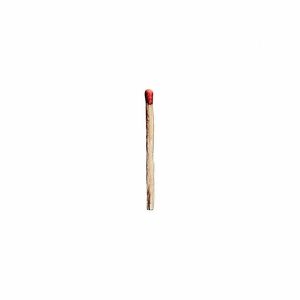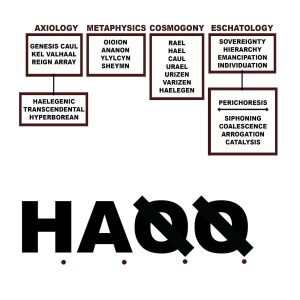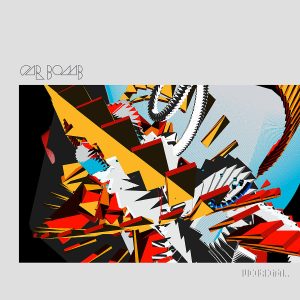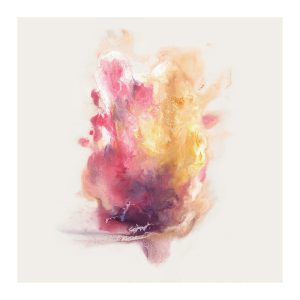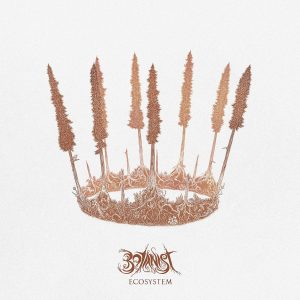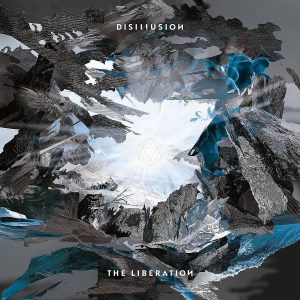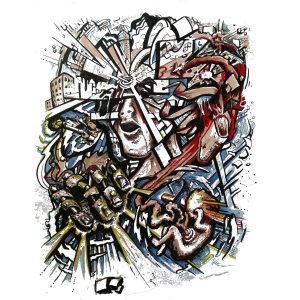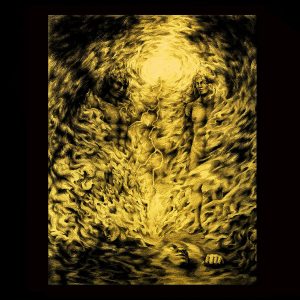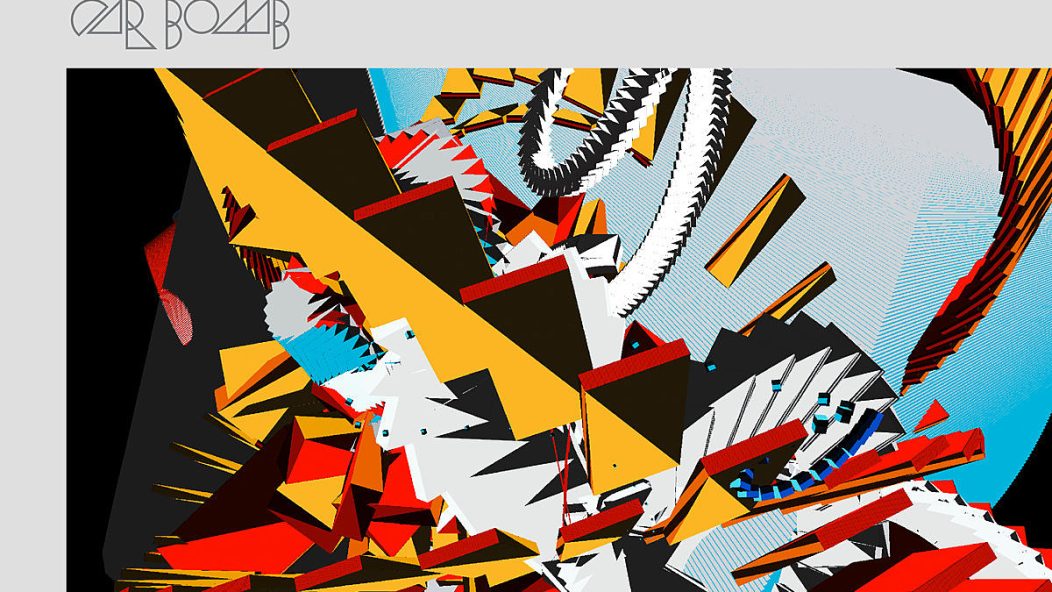
Andrew Rothmund's Top Albums of 2019
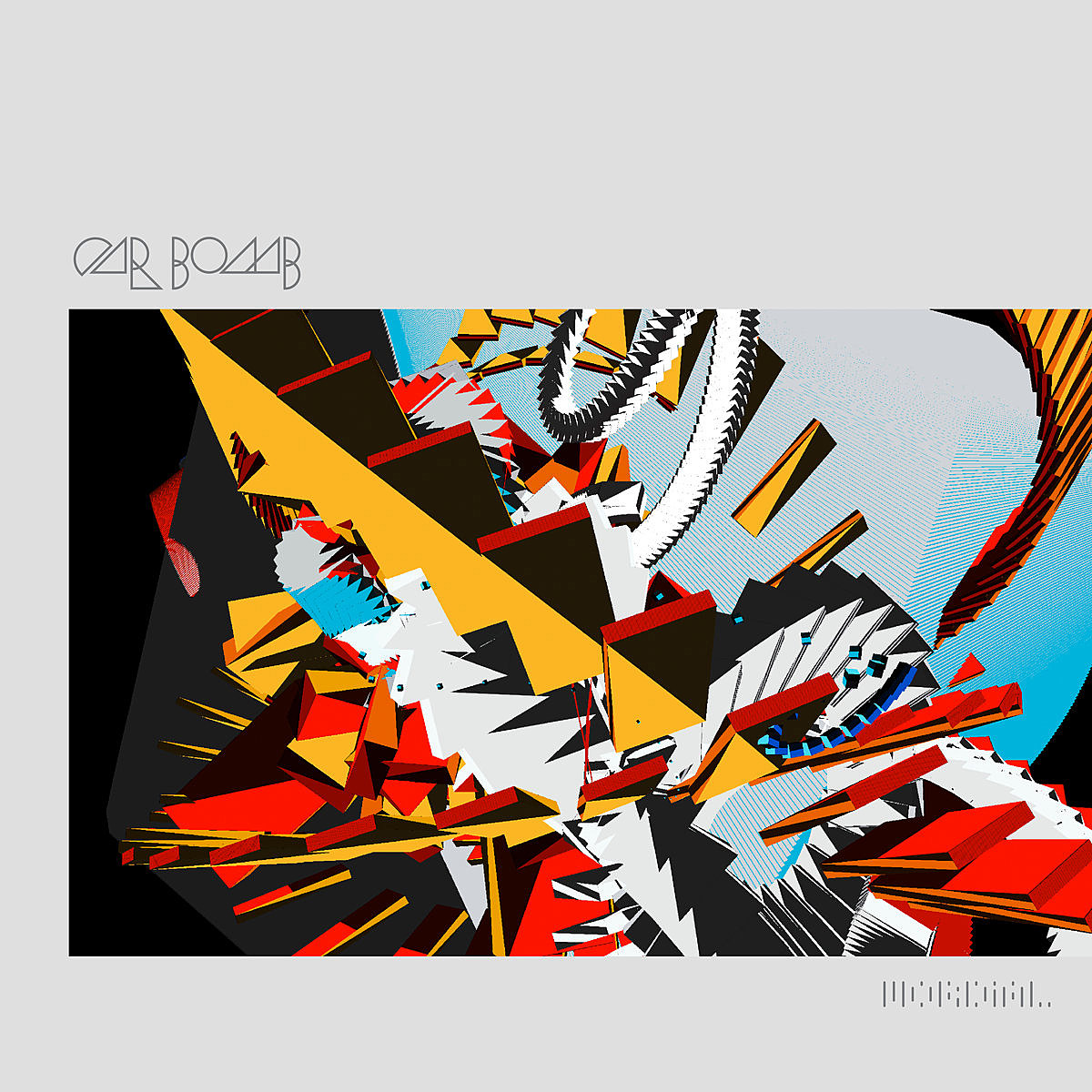
…
Sometimes you just have to lean back in your chair, close your eyes, slowly draw in large volume of air, and wonder out loud in utter exhasperation: “what in the ever-loving fuck is going on?”
I suppose I could go on some brilliant but ultimately convoluted diatribe about extremism, about fascism, about racism, about run-amuck capitalism, rampant consumerism, ravenous chauvinism, and all the other bad-isms in this world, plus the wanton ruination of nature which will soon really fuck us over if nuclear annihilation doesn’t just moot the entire problem first, plus all the vast economic and structural inequalities among the supposedly born-equal peoples of this planet, yada yada yada. But diatribes are dumb as much as they are brilliant, becuase they relate to nobody, and nobody really can relate to them — they are, deeply and truly, just a writer jerking off, aiming to nail that primal climax where simply feeling and sounding correct overcome all other considerations. I’m the first to agree: even in a world whose wick burns ever faster, having a wank is great and definitely not a total waste of precious time. But some things are just for sanity while other things are also for salvation; unless we can turn masturbation into real/actual art or some kind of perverted source of renewable energy, we’re going to have to rely on something heavier than the helium that inflates our egos to extract us from the dawning murk of non-existence, the hell of a ceaseless and total void that looms closer and closer every single goddamn day.
I, for one, wish to continue living; I know there’s that void over the edge, and I try to keep in mind that feeling something is better than feeling nothing at all, even if that true-sounding statement completely breaks down the moment you’re forced to choose between, say, being stabbed or being shot. Both bad feelings, of course, and sometimes they’re all there is to choose from (or be subject to). I suppose what I’m saying is this: sometimes life feels like a contest to see who can take the most bullshit before rage-quitting or going completely insane, and the current state of affairs in the world is not helping diminish this conception of things. But neither is my internal state, which this year became increasingly tumultuous and unpredictable — I seldom find those precious moments of strength anymore where I can apply determination and keep my head down, it seems, leaving me disarmed and chronically behind on responsibilities. I can’t help but think that the horror-chaos of the world has gotten to me, but I know there’s something existential beyond even that which continues to haunt my ether.
In my year-end list last year, I wrote about how heavy metal has been my armament of sorts, a battle-suit to protect me during skirmishes with myself and the world at large. It’s my artform of choice, keeping me in check with what feels really real as opposed to dystopian and false; while thus an escape, heavy metal is also a lens which can be focused and defocused at will. It’s also an oftentimes morbid, dark viewport for the world: it’s horror, hell, and halloween in one, a place where the sinister and savage are brought to the forefront for examination and, ultimately, understanding and coming-to-terms. I don’t think I’m alone in this audience in thinking about death a lot — I can’t escape its inevitability nor can I manipulate its discretion. But I can funnel those thoughts through heavy metal which, thankfully, does involve lengthy libraries of content and comes with a volume knob and on/off switch. It’s not a perfect mechanism, but it’s all I’ve got and it’s all I know, something which I know is also true of many who write heavy metal and about it.
This is all very me, though, and for many, a relationship with heavy metal can be markedly different, even totally opposite. In my mind, this speaks only to one truth: music is as varied as all the people in the world are, and scaling it down to specific genres still doesn’t diminish this truth. This is such a beautiful thought, to me, all styles of music being a virtual infinity, each one alone always more than one person can reasonably consume even in numerous lifetimes. We talk about infinity out in space, or infinity in mathematics, but what I’m talking about are the infinities we create for ourselves out of necessity, not theory. Music must exist because we must exist, and for no reason other than existence itself and its concomitant experience. This is why music has always felt truer to me than any dogma, ideology, religion, or platitude out there. This is why music goes so far beyond anyone’s criticism of it. This is why music is symbiotically personal and collective (and this is why nobody’s year-end list is better or worse than anyone else’s). This is why music is really about meaning, with what we consider music’s substantive content more like a cortex surrounding deeper and more mysterious (and sometimes primal) mechanizations.
Bottom line: music can’t save the world, but it needs to try, because if it doesn’t, then we’re sure-as-fuck fucked.
This doesn’t mean music needs to be political, though certainly it can be overtly so (Rage Against the Machine’s return is my favorite news of the year). Music need only be real, and not fake. The only defining line between fake and real is in the heart and mind of the creator, not the listener, and most definitely not the critic. Where I’ve found the most authentic artists, at least in my estimation of character, has been heavy metal; how we specify authenticity, though, is individual to all of us, leaving the map wide truly open for appreciation. It eventually leads to a web of connectivity which also preserves real diversity; as long as you have fairness and compassion in your heart, and so does another, your love together for music will vibe and mirror. Heavy metal is just one type of music, music is just one type of art, and art is just one type of the meaning-generating machines which we need to crank to overdrive to begin rebuilding some of the broken tethers of humanity.
I’m far more interested in connection than division; I love year-end lists not because of winners and losers, but because everyone gets to showcase and share an entirely unique taste. It’s one time of year we all sort-of chill the fuck out and just talk about all the killer shit we heard and loved. It builds community, togetherness, and all that bunny-rabbit shit that actually is quite important for music, heavy metal specifically with its strong in-group cohesion and multifaceted subculture. And we act and simulate brutality, violence, and gore, but only because we’re doing it together to make sense out of something actually brutal, violent, and gory: the real world. Maybe in a far less problematic iteration of humanity down the road — here’s to hoping we get there — heavy metal won’t really need to exist anymore.
But heavy metal sure as hell exists now, and the reason, at least to me, seems clearer than ever.
…
Honorable Mentions
Xoth – Interdimensional Invocations (Independent, USA)
Waste of Space Orchestra – Syntheosis (Svart, Finland)
Gomorrah – Gomorrah (Willowtip, Canada)
Iapetus – The Body Cosmic (Independent, USA)
Wolvennest – Vortex EP (Ván Records, Belgium)
Nusquama – Horizon Ontheemt (Eisenwald, Netherlands)
Earth and Pillars – Earth II (Avantgarde Music, Italy)
White Ward – Love Exchange Failure (Debemur Morti, Ukraine)
No One Knows What the Dead Think – No One Knows What the Dead Think (Willowtip, USA)
Warforged – I: Voice (The Artisan Era, USA)
…
Only legends can take a nearly ten-year gap between albums and remain relevant. It might also help to be known as one of the bands with the greatest stage performances in all of heavy music. Rammstein’s return in self-titled form shows us the most dynamic slice of this household-name band to date, honing hard rock’s edge with razor-grade industrial metal then cleaving you to bits with it. Rammstein also sees the first instance in the band’s history (correct me if I’m wrong) of screamed vocals from Till Lindemann — album midpoint “Puppe” has the famed baritone achieving significant distortion and grit at high volume as the song opens up into something… unexpectedly layered? Seriously, this is the heaviest Rammstein song to date, and also the thickest, and it’s just one of ten other virtually perfect songs that comprise Rammstein‘s almighty German girth. “Puppe” is my favorite, in part because of the harsh vocals, but also that goddamn wall of fucking noise that I’ve never heard from Rammstein before.
Even the opening track and first single “Deutschland” (a mirror, sort-of, of “Amerika” from 2004’s Reise, Reise) demonstrates this band as literally incapable of growing soft, tame, or lame. The music video shows this clearly: Rammstein’s members are now quite obviously older, but their senses for groove and melody are still on brand. Like the Rammstein that I discovered super-early on in my metal phase (which has yet to cease), this new album totally excited (and satisfied) me; like Duffman from The Simpsons, Rammstein never dies, only the actors that play it. I was so much different back then, almost two decades ago now, yet this band has maintained that sensational appeal all the while — I’m not alone on this either, Rammstein ticked the highest on US charts in the band’s history at #9 (but obviously #1 peak throughout much of Europe). Fick ja.
True, bare fact: Liturgy would be treated and understood just like any other cutting-edge experimental black metal band out there (though few they are); however, because project mastermind Hunter Hunt-Hendrix maintains a completely harmless but nonetheless somewhat pedantic and contrived media presence, people write the band off as equally pedantic and contrived. This is sad, mostly because such a write-off relies on understanding Hunt-Hendrix as a boxed, digital personality first instead of a storied, human maker of music. It’s almost as if some music “fans” are actually more interested in the eccentricities of artists than the actual music; it’s almost as if we’re subscribed to only one way of artists interacting with their music in public. Above all else, I think, hating on Liturgy is old hat nowadays, so even if someone polishes their rod so shiny that their opinion about this band is more imposing than the sun, they’re still behind whatever edge they think they’re honing. Not liking Liturgy’s music is totally fair; not giving it a fair chance is a huge mistake, especially if you’re a little bored of black metal.
So, this year saw the surprise release of H.A.Q.Q., Hunt-Hendrix’s absolute top work to date. Not only is this new brand of Liturgy much more accessible, it’s far more emotive and bare than albums prior. It achieves its surging nature by more strongly fluctuating the wavelengths of the music’s entire ensemble, not just modulating individual pieces to achieve a certain sound. The “burst beat” thing is on H.A.Q.Q. far toned down, replaced with groovy but still super-saturated choruses that beg for headbangs. Gone are the clean chants of The Ark Work, an element which arguably played to that album’s favor but wouldn’t find comfortable home on H.A.Q.Q.. That said, Hunt-Hendrix imbues some extra melody and polishing, adding to the album’s dreamy, hypnotizing aura.
H.A.Q.Q. will not transcend you, and there is no such thing as transcendent music, as long as we conceive of transcendence from a standpoint favoring empericality. However, humans do not experience the world through purely empirical senses, and I’ll venture a fair bet that H.A.Q.Q., if heard appropriately, can disconnect your conscious mind from the past (depression) and the future (anxiety) in all the right ways. This can happen with any music really — achieving an in-the-moment presence with the music, hearing it second by second — but Liturgy have never made it so easy to cross the boundary between listening and hearing, understanding and feeling. As for, specifically, the philosophy or philosophies or anti-philosophies or whatever which are purposefully embedded within the music (and adorning H.A.Q.Q.‘s cover artwork)… beats the hell out of me.
Everything about Car Bomb is radical in an angular, artistic way, accomplished by mainlining the most radical band in all of metal — Meshuggah — without copycatting, emulating, or otherwise ripping off the Swedish legends. In fact, Car Bomb is the purest antidote to djent discovered to date, something fresh and new while still grounded in established radical metal theory, plus that lovely dose of mathcore. This means the band is at once totally fresh yet totally relatable; indeed, that is what’s radical about them. Mordial as a successful Car Bomb album, at least, comes as no surprise: it sounds like Car Bomb. As a successful post-mathcore (?) album, well, it checks every single box, then adds a few more boxes, then checks those, then lights your pants on fire, then laughs maniacally while breaking down harder and wickeder than most deathcore but instead with actual style.
Mordial is a modern art painting that punches you in the fucking face.
Semi-interesting story: it was actually former Invisible Oranges Editor-in-Chief Ian Cory who turned me on to Car Bomb; he called them “one of the most criminally underrated bands in heavy music,” and he was and still is 100% correct. Car Bomb aren’t unknown, but diving deep into their discography reveals so many dynamic angles and protrusions and weird grooves and headbangy chugga-chugs that the band feels huge. No matter, popularity is dumb, and so is waxing too much poetic about something better listened to than read about. Spin Mordial so it can spin your head.
Death metal is super in-vogue right now, which in my opinion is badass. The glut of fantastic death metal this year is almost overwhelming, but think of the alternate reality: a lack of new death metal? Fuck that, more is always better. That said, I don’t think Cosmic Putrefaction’s entry into the death metal annals this year really fits the vogue. I mean to say that it leans away from OSDM characteristics in lieu of spacey blackening, plus it’s a little more chaotic and spasmodic and even abstract than the more concrete (albeit progressive) sound defining the genre at the moment. Multi-instrumentalist G.G. masterminded this project, but contracted Brendan Sloan of Convulsing for vocal duties (along with a second guest too). Altogether, At the Threshold of the Greatest Chasm scorches and slices like Satan jabbing at a misbehaving demon with his flaming trident, only in space, at absolute zero. And, of course:
BLEGH!
— “The Ancient Demagogue”
I'll be honest, too: At the Threshold of the Greatest Chasm is a lot. I'm actually glad it's less than a half-hour long. I can barely take the entire album at once; it's a mental overload with few breaks. But it really roars during its pithy overture, climbing to densely layered highs and sinking to guttural, plodding lows. It favors short-burst fluctuations over grand, sweeping movements, but the range of this album is by no means limited. It also coheres nicely, not so much as a story or narrative but more like a string of connected variations on the same straightforward goal: to fuck your mind up with death metal.
A Gaze Among Them isn’t metal outright, but who gives a shit, this album will wreck your goddamn heart and soul. Big|Brave do not hold back or veil any emotionality here; the album is basically a bleeding wound, and listening to it is like being bled on. That alone qualifies it for honorary metal status, in my mind at least. With a heartwrenching vocal performance and unabashed postmodern/post-rock style, this band went far above and beyond its genre’s usual trappings to deliver something much more universal and potent. And it’s not like Big|Brave grounded themselves in easy-sell grooves or generalized noise-walls with tons of embellishment; A Gaze Among Them feels explicitly raw despite its production and polish. Think lens wide open. Think blurry cityscapes through fogged-up car windows on a rainy night after a funeral. Think the warmness of tears on a frostbitten face.
Botanist’s Ecosystem is sheer magnificence not just for black metal, but all extreme music. Replacing distorted guitars with hammered dulcimer obviously impacts Botanist’s sound in relation to genre peers, and it also solidifies their idiosyncrasy even though writing music about/for nature is nothing new at all. The band’s approach has never felt more honed and tuned: Ecosystem is Botanist distilled and finely packaged. The album shimmers and dances about, calling to mind ballerinas in the forest when most black metal feels either like a gamma-ray burst or being tossed straight into hell’s maw. It’s actually impressive how accessible all of Botanist’s music is, especially Ecosystem, which is one reason of many why I appreciate and adore this band so much and always recommend it for newcomers to black metal who want a different path inward.
The concept of beauty in metal often gets convoluted somewhere between “real ugliness is pretty” and “fake beauty is ugly” — Botanist, however, throw the question out altogether. Ecosystem feels natural, of nature and for nature and with nature; it feels like when I journeyed across Iceland’s desolate landscapes or when I saw the Grand Canyon for the first time. You don’t so much listen to Ecosystem as stand inside of it, becoming part of the music if you let yourself, owing to the album’s trance-like undertones and ethereal atmosphere. Black metal, yeah right, actually. Green metal is where it’s at.
Hail Earth. Or at least we better, lest Earth eat us alive.
Of all the 20 albums mentioned in this article, Disillusion’s stupendous decade-plus return from full-length dormancy with The Liberation is by far the most likeable. It is the most things to the most metalheads; if it’s truly as good as I say it is, it might as well be all things to all people. This album cuts through the staleness of its genre like an iron-hot machete, solidifying melodic death metal as capable of being hyper-modern, super groovy, and a motherfucking blast to listen to, all sans cheese. It’s just plain fun, but without being goofy or daft. Disillusion have written a dead-serious death metal album that functions brilliantly whether through headphones in bed at night or through the car stereo on the highway — its guitar/bass-lines feel timeless and shimmery, the drumming scales back when necessary but goes full-tilt at the most opportune moments, and lead singer Andy Schmidt’s voice burns like a tire fire.
For nearly an hour, The Liberation delivers all the entertainment value of a blockbuster but without the hollow recycledness that accompanies most big-name releases nowadays (both music and movies). I set it next to Kalmah’s The Black Waltz in my head as an album nearly impossible to resist headbanging to, especially alone, despite its proggy complexity — Disillusion integrated a ton of nuance and production into this album, and it all works to enhance the physical impact of their music instead of masking it. It’s engineered to exacting precision (let’s call this the Porsche of metal albums), but feels superhuman without being robotic or mystical. I am so sold on this album; just buy the damn thing and rock it a thousand times over.
Simple talk: GEAR is some top-quality shit. This album is the kind you find while sifting through endless pages of would-be/could-be releases on Bandcamp, and just when you’re about to give up, you click one odd-looking album as a last-go before just putting on some rando black metal or whatever because you couldn’t find anything both new and decently interesting. What you get instead of the rank stench of musical disappointment is a 20-minute instrumental motherfucking masterpiece that vacuums your mind into a veritable hole where it is massaged, vibrated, and undulated like the squishy mass it is. GEAR pulses with energy most viciously raw; this band needn’t vocals simply because their music is just so profoundly catchy and groovy that even the greatest vocalist ever would still tarnish its right-out jam. Penultimate track “Radiation Judge” does it perfectly in one go, too, acting as summation, climax, and coda in pithy breath, but leaving you breathless with its assaulting groove and saturated atmosphere.
Basically, I can’t tell whether this music is superhuman or inhuman; it chugs along with machine-like intensity but creates such beautiful auras in its thickened wake.
The work, all-in, is a DIY collective of ten: guitarists (four), synth, bass, drums, recording, mastering, and visual artwork. Well, to you ten, here’s my message: thank you, holy shit, and please make more of this stuff. If you can’t tell from my esctascism about this release, I pretty much consider it musically flawless. It might actually be my top pick if it were a full-length (not that this brevity detracts from the music itself, but rather that GEAR could definitely tell even grander stories with more room to work). Suffice it to say: this release captures so very rawly the musical energy that most, if not all, metal conveys, and does so transparently and without pretense. Think of it as concentrate; I, however, never add water.
The collectivity of music is inherently ritualistic; all music becomes ritual on the personal level as well. Few bands outright, though, call to mind the actual capital-R Ritual (or even ceremony) that Heilung does, opting instead for something which doesn’t involve lots of chanting in obscure ancient languages, a legion of tribalistic drummers, and an immensely captivating stage performance. Futha is definitely not metal, and even though some of the vocals are harsh, I think Heilung is sort-of doing their own thing here. And what a wonderful thing Heilung is, because I simply do not have any other music which can zonk me out into oblivion like their latest album Futha can. It’s the kind of magic when you try to mentally compile the album in your head, you find yourself completely unable to capture its raw essence without having it playing.
The intensity that Heilung imbues into their sound is definitely shared by metal, and again, I think an honorary metal certificate is warranted here. As much as Futha is a showcase of beat and energy, it’s also certifiably intoxicating with its huge variances in mood, vocal styles, and pacing. Getting lost in this one is pretty much a given no matter what the situation; there’s no casual listening of this album or any Heilung album for that matter. I appreciate this level of fastidiousness when it comes to creating something that sounds truly special; Heilung have already made a name for themselves as exacting scientists of sound, not just creators of it. And, special news from last month, the band will be touring North America next year. Consider me already there.
A slight bend to the traditional rules of lists: here are two albums as #1, not one. However, these twins were released together, and separating them (or picking one over the other) just seems pointless when both, taken as one, comprise something so profound and so moving that the choice just had to be clear. Storm Mysticism and Shores of Avarice represent some of the finest black metal ever laid to tape; Sanguine Eagle take everything into consideration, combing the genre for just the right pieces before arranging them into something completely unexpected. Much of these two albums is occupied by not-metal — the artistic ambiance we’re gifted before, between, and after the black metal is just as important. When given full attention, these two albums dole out swaths of energized, traumatic, and textured noise (whether harsh or gentle) on wavelengths so powerful, sometimes it blows you back in your chair a bit.
I suppose when it comes to music that I like and appreciate this much, there’s only so much I can really turn into verbiage. Sanguine Eagle just happens to nail those sweet-spots of polished rawness and clamoring silence, all without even feeling like they’re trying. It’s the effortlessness of Storm Mysticism and Shores of Avarice that gets me each and every time: Sanguine Eagle does a lot without sounding like they’re about to boil over, a problem I think most black metal of this ilk contends with. And when the highs break and fall into depthless valleys, or when you’re rocketed out from hell into space at lightspeed, Sanguine Eagle always feels there with you, not playing to you, but for you.
It’s the closeness of music I was talking about above. I felt that with Sanguine Eagle the most this year, hence its position on this list. These two albums feel like they could bridge any two disagreeing black metal fans; together, they feel like a culmination of a genre’s work, not just a band’s individual work. Whether they succeed on this level is yet to be seen, but for me, success is already here: Storm Mysticism and Shores of Avarice moved me in ways more positive than I can describe with words or that the band themselves will ever really know. And so, of course, there’s always a bit of a mystery to music too, between the creators and consumers of it — I’m all for that mystery, why some things work for some people and not for others, and champion any band who can bank on the intrigue of what feels like pure magic.
